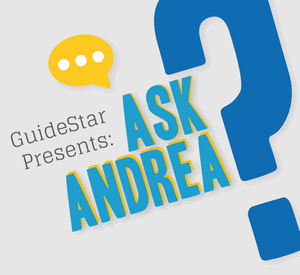 Yesterday I asked a former colleague, who is also a friend of mine, for a favor…
Yesterday I asked a former colleague, who is also a friend of mine, for a favor…
I was hoping he would feature my recent post on intentional conversations in his newsletter, a very popular publication with more than 10,000 subscribers.
But before I could ask the favor, first I had to deal with a huge amount of inner resistance.
In fact, I almost didn’t ask at all.
Why not?
- I was afraid he’d feel I was being pushy or inappropriately infringing on our friendship.
- I didn’t want to put him in the awkward position of having to say “no” to me.
- I was anxious that he might not like the post — and I value his opinion.
Besides, perhaps he already had too much content. Perhaps I was already too late for his deadline.
Perhaps … perhaps … perhaps …
Why was I feeling this way? After all, as I said, the man is a friend of mine. It wasn’t like I was approaching a stranger out of the blue for a favor.
So what inside of me was making me so frightened to ask?
Lizard Brain: The Messenger of Anxiety
I struggled to ask my friend to highlight my blog post in his newsletter because my Lizard Brain — that old “reptilian cortex” — was urgently chattering away. She (yes, my Lizard Brain is a she) was just trying to keep me safe by preventing me from being hurt or disappointed by my friend’s potential negative response.
On this particular occasion, “Lizzie’s” concerns were way out of line, but occasionally she is justified and alerts me to a true threat. The problem is that more often than not, Lizzie sounds the alarm when the danger is minimal, or even nonexistent.
I’ve come to recognize my Lizzie and her chatter. I know her patterns and what she sounds like.
When I can, I simply override Lizzie’s fears and move ahead anyway. But when I can’t, when Lizzie’s chatter is so loud that it stops me in my tracks, then perhaps she’s saying something that’s worth my attention.
Many Lizard Brain Assumptions Have No Foothold in Reality
So, do you want to know how my friend responded to my request that he highlight my blog post?
He sent me an email with the following:
Perfect timing on the blog post and I will definitely link to it. I was low on content for this month’s newsletter, which I’m writing at this very moment, so I will absolutely link to it there and find other ways to highlight it!
In this case, all of Lizzie’s assumptions were dead wrong. Not only did my friend agree to my request, it turns out I was actually helping him accomplish his own goals just by asking.
Learn to Recognize Your Own Lizard Brain’s Chatter
Start noticing the warnings that stem from your own Lizard Brain. How often does she (or maybe “he”) have a valid point? And how often are those concerns overblown?
As you learn to pay attention to what your own Lizard Brain is saying, you’ll become more aware of when you’re receiving a legitimate warning. You’ll also start to pick up on when what you’re hearing is simply a list of your garden variety anxieties that you can choose to ignore.
* Note that the term Lizard Brain isn’t mine; recently Seth Godin and others have been giving the term some play. But long before that, I learned about our Lizard Brain from a friend who is an Army Special Services veteran. He first introduced me to the term to describe the powerful self-protective part of his brain that kept him safe in battle, but caused him serious trouble when he got home.
You can read more about the Lizard Brain here; it’s part of the “triune brain” theory developed by neuroscientist Paul D. MacLean.
The wonderful graphic designer Joanne Hus has not only blogged about Lizard Brain, but she’s illustrated a fantastic and beautiful little Lizard Brain booklet. If you ask her, she’ll send you a copy!
Can you recall a conversation you’ve had with your Lizard Brain? If so, tell me about it in the comments.
